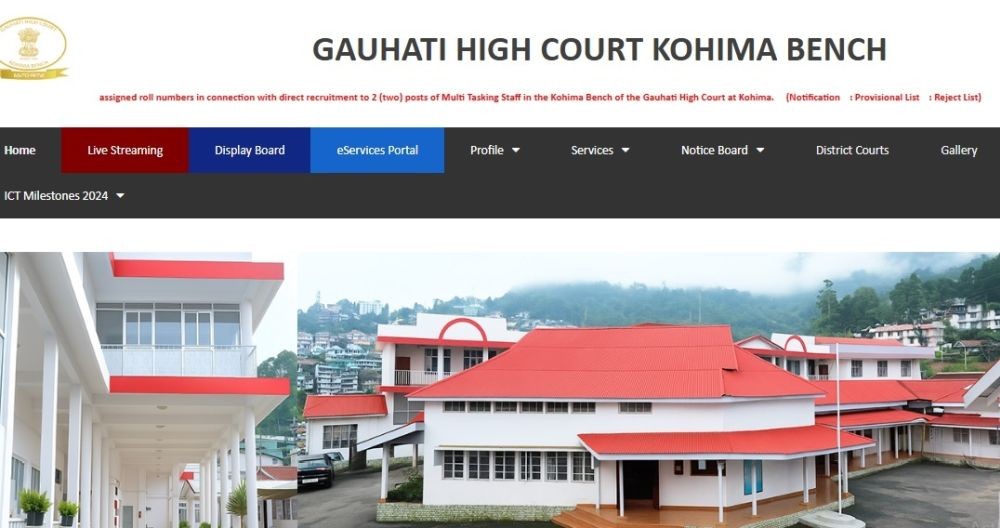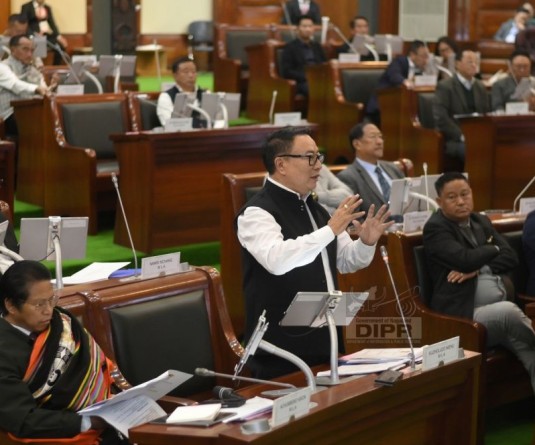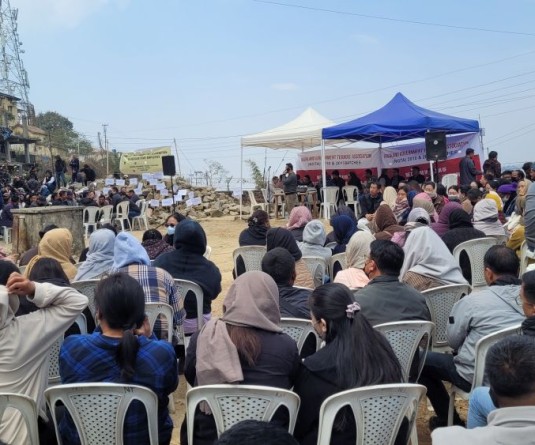
Urges State to end prolonged ad hoc faculty posts despite dismissal
Morung Express News
Kohima | November 12
The Gauhati High Court Kohima Bench (GHCKB) has dismissed a batch of writ petitions challenging the contractual appointment of Assistant Professors in government colleges across Nagaland, holding that the petitions were not maintainable on technical grounds—but with a significant observation urging systemic reform.
Delivering a common judgment on November 12, Justice Yarenjungla Longkumer ruled that most petitioners lacked locus standi (legal standing) as they were not qualified at the time the appointments were made. The Court further noted that the appointments were temporary, fixed-pay engagements and not against sanctioned posts, and therefore not comparable with regular recruitment under Articles 14 and 16 of the Constitution.
However, while dismissing the petitions, the Court expressed serious concern over the State’s continued reliance on ad hoc and fixed-pay faculty appointments in higher education. It urged the Nagaland Government to create sanctioned teaching posts and fill them through a transparent recruitment process.
Allegations of ‘backdoor’ appointments
The petitioners, all NET-qualified candidates from various disciplines, had challenged the appointment of several contractual Assistant Professors made between 2008 and 2019.
In an earlier case (WP(C) No. 340/2022), the petitioners questioned the appointment of 31 Assistant Professors allegedly made “through the backdoor” without public advertisement, in violation of several State Government Office Memorandums (OMs) issued between 1976 and 2016 that prohibit direct recruitment without open notification and ban contractual appointments against regular posts.
A subsequent batch of petitions (WPC Nos. 188–195, 197, 198, and 208 of 2023) raised similar grievances across different subjects. The petitioners sought quashing of the appointment and extension orders of contractual teachers and requested that the posts be requisitioned to the Nagaland Public Service Commission (NPSC) for regular recruitment.
State’s defence
The State Government defended the appointments as temporary, fixed-pay measures to address an acute shortage of teaching staff. It stated that these engagements were made only in departments where no sanctioned posts existed, to ensure continuity of teaching in new courses and colleges.
The government also informed the Court that all sanctioned posts had been duly requisitioned to the NPSC and advertised in 2013, 2015, 2016, and 2022. The contractual teachers, it said, were paid a fixed amount of Rs 30,000 per month without service benefits and were required to obtain NET or PhD qualifications for renewal of their contracts.
Petitions held non-maintainable
After hearing all parties, the Court observed that while public employment should ordinarily be made through open advertisement and against sanctioned posts, the impugned appointments were stopgap arrangements to maintain academic continuity.
It held that the writ petitions were defective and non-maintainable, as most petitioners were not NET-qualified when the respondents were appointed, and because multiple unrelated causes of action were combined in a single petition. The Court also noted that the petitioners had neither replied to counter-affidavits nor challenged subsequent extension orders.
Accordingly, the petitions were dismissed on grounds of maintainability and locus standi, though the Court permitted the petitioners to file fresh, properly framed petitions if they wished to pursue the matter further.
Justice Longkumer also observed that contractual and interim teaching arrangements in government colleges have continued for years and called on the State to take concrete steps to end the practice.
“Contract or interim arrangements are being continued till date. It is expected that such interim arrangements should not continue indefinitely,” the Court stated, urging the government to formulate a policy for creation of sanctioned posts and recruitment through due process.
The Court emphasized that while exigencies may justify temporary measures, such arrangements cannot become a permanent substitute for regular recruitment through the NPSC.






